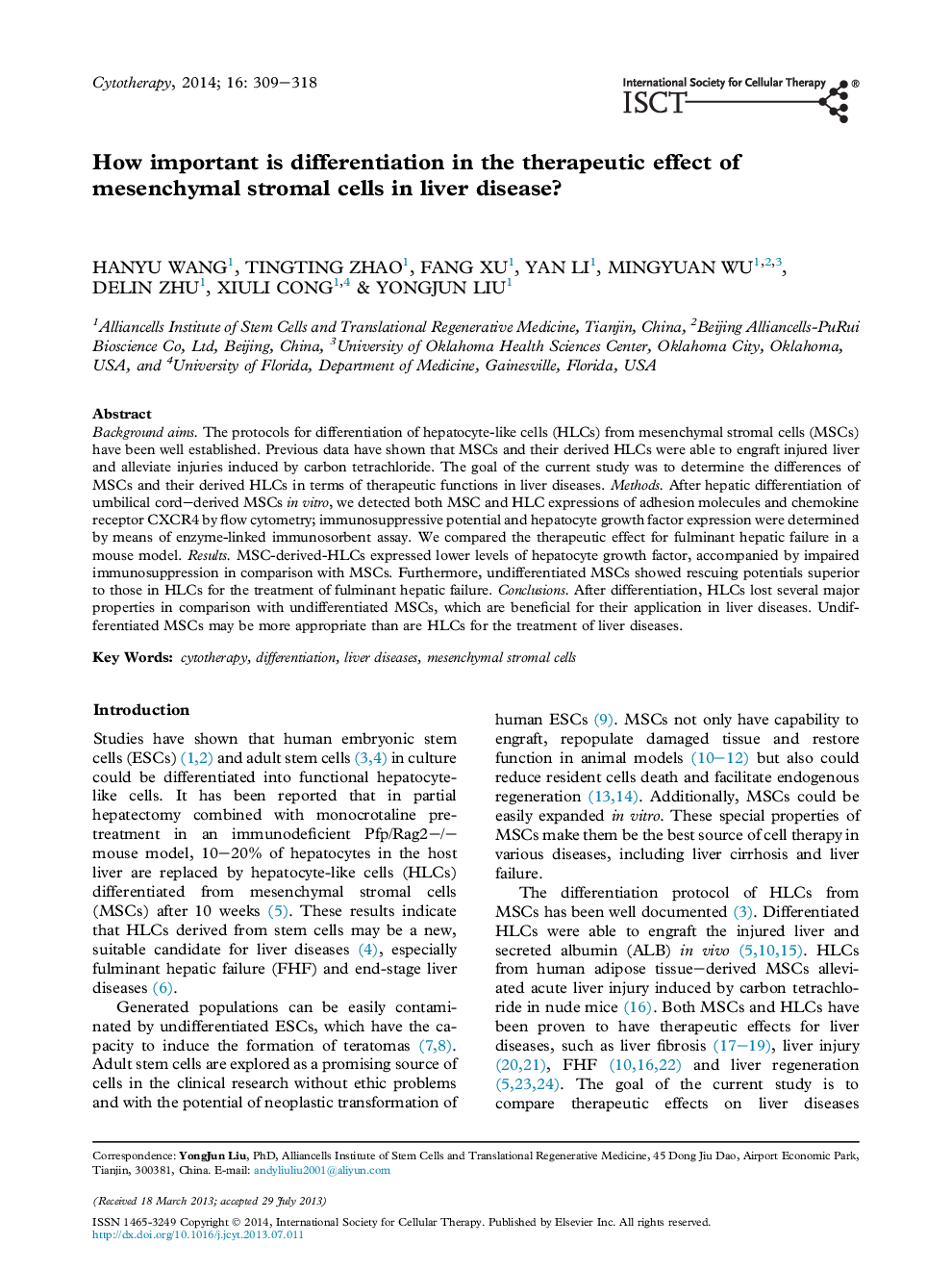| کد مقاله | کد نشریه | سال انتشار | مقاله انگلیسی | نسخه تمام متن |
|---|---|---|---|---|
| 2171751 | 1093500 | 2014 | 10 صفحه PDF | دانلود رایگان |
Background aimsThe protocols for differentiation of hepatocyte-like cells (HLCs) from mesenchymal stromal cells (MSCs) have been well established. Previous data have shown that MSCs and their derived HLCs were able to engraft injured liver and alleviate injuries induced by carbon tetrachloride. The goal of the current study was to determine the differences of MSCs and their derived HLCs in terms of therapeutic functions in liver diseases.MethodsAfter hepatic differentiation of umbilical cord–derived MSCs in vitro, we detected both MSC and HLC expressions of adhesion molecules and chemokine receptor CXCR4 by flow cytometry; immunosuppressive potential and hepatocyte growth factor expression were determined by means of enzyme-linked immunosorbent assay. We compared the therapeutic effect for fulminant hepatic failure in a mouse model.ResultsMSC-derived-HLCs expressed lower levels of hepatocyte growth factor, accompanied by impaired immunosuppression in comparison with MSCs. Furthermore, undifferentiated MSCs showed rescuing potentials superior to those in HLCs for the treatment of fulminant hepatic failure.ConclusionsAfter differentiation, HLCs lost several major properties in comparison with undifferentiated MSCs, which are beneficial for their application in liver diseases. Undifferentiated MSCs may be more appropriate than are HLCs for the treatment of liver diseases.
Journal: Cytotherapy - Volume 16, Issue 3, March 2014, Pages 309–318
